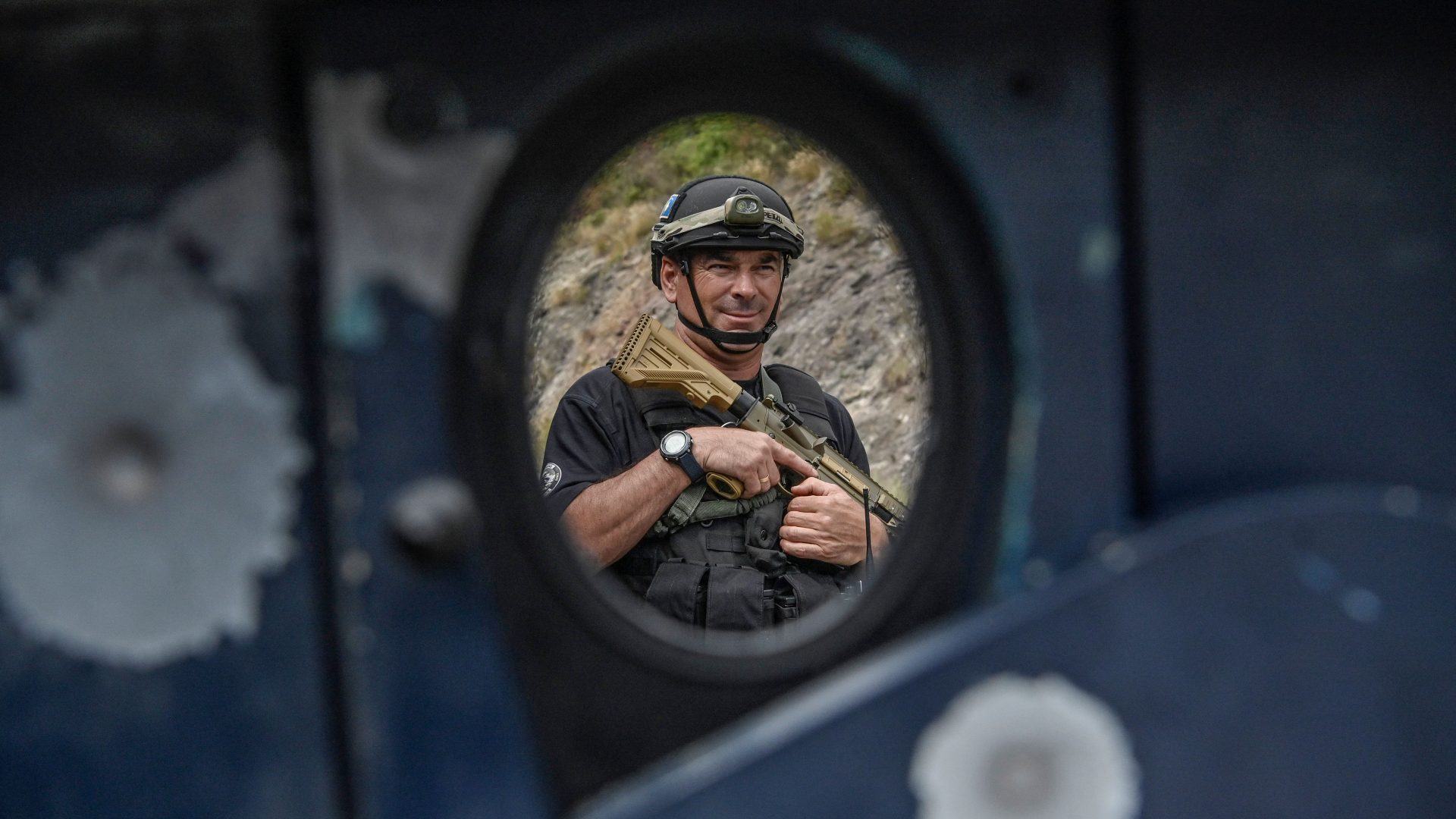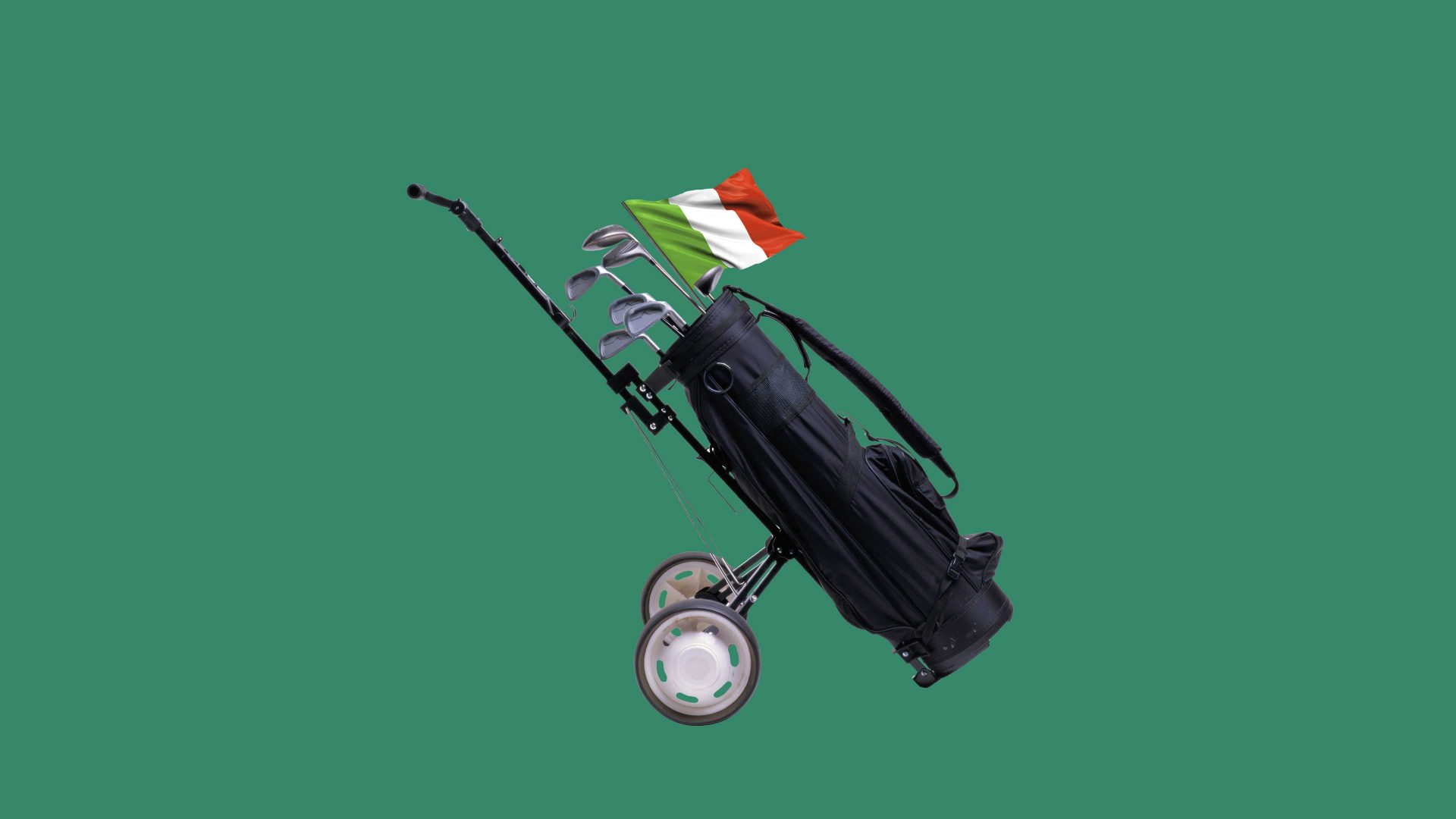“Not again,” was the thought that went through the minds of all Serbians after bloodshed once again knocked on the old Balkan door. The men with guns are back.
What really happened? On Sunday September 24, a fight broke out between a heavily armed group of mostly local Serbs and the Kosovo police in the village of Banjska in northern Kosovo, near the Serbian border. One Kosovan police officer was killed and two wounded, while at least three Serbians were shot dead, and several others severely injured.
It was one of the worst incidents since Kosovo declared independence from Serbia in 2008, and follows a year of high tension between Pristina and Belgrade. Peace negotiations, led by the EU and US, have failed.
But who were the heavily armed masked Serbians in military uniform – and what do they want?
Kosovan officials are calling them terrorists, accusing the Serbian state and its president, Aleksandar Vučič, of masterminding an offensive operation. The Serbian president conceded that a group of what he called “desperate local Serbs” had indeed carried out the attack, but accused the Kosovan prime minister, Albin Kurti, of terrorising Serbs in north Kosovo. This persistent repression, he claimed, provoked the incident. Vučič countered by claiming that “brutal ethnic cleansing is being carried out in Kosovo” with Kurti’s approval and that the Kosovan leader is trying to push Serbia into a direct confrontation with Nato.
As with so many inter-ethnic conflicts, both sides have at least some element of truth on their side. Until the most recent outbreak of violence, Belgrade was being praised by the EU for its positive attitude in the “dialogue” with Kosovo.
On the other hand, Kurti was openly criticised by Josep Borrell and Miroslav Lajčák, the EU representatives overseeing the negotiations, for his hardline stance. Serbia wants to push ahead with setting up the Association of Serb Municipalities, in which the north of Kosovo, where the population is predominantly ethnic Serb, would have some kind of self-government. That idea was decided in a 2013 agreement that was supervised by the EU. Kurti now apparently rejects that idea, even though the agreement was signed by both sides. He was the one beginning to look like the obstruction to progress.
But this new outbreak of violence has handed back the advantage to Kosovo. It looks as though the Serb leadership lost control of its political minions in Kosovo, some of whom are linked to criminal groups that no longer trust Vučič to shield them from the Kosovan police.
For years, diplomats have claimed that, back in 2012, Angela Merkel had “approved” Vučič, the hardline nationalist, reasoning that his chauvinist past would make him adept at manipulating conservative voters. However, western support created an authoritarian monster whose ties with organised crime have now become all too apparent. Nowadays, you never know what he or his heavily armed associates are going to do next.
And the irony is that the Serbian community in Kosovo is the biggest loser of all. The Kosovan state, which is also led by nationalists, has failed to provide a proper home for its Serb minority, which has been manipulated by the government in Belgrade for its own political gain.
All of this is overshadowed by the looming history of the 1990s, when the Serbian state led by Slobodan Milošević committed outrageous atrocities against Kosovo Albanians. But now it is the Serbs who are in the minority and things look very different. Another memory rises to the surface, this one of 1995, when Croatian forces ethnically cleansed more than 200,000 Serbs from its territory after several horrifying years of war in Yugoslavia.
I was one of those Serbian kids, in the long column of crowded vehicles that fled Croatia, and I can’t help but feel a deep sympathy with the current situation in Kosovo. I hope this can be sorted out – or else the grubby accountant of history will be back to mark down more victims, in a region of south-east Europe that has already paid more than its share of blood.



